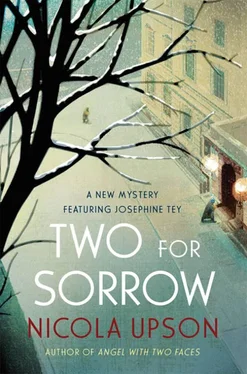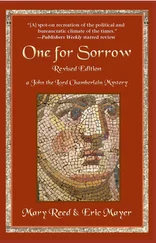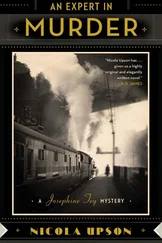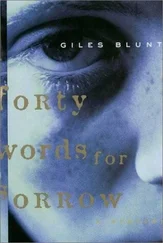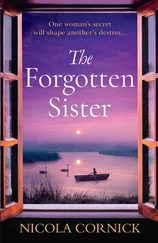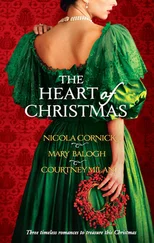The room was small but comfortable, and charmingly furnished with everything she needed and nothing more: a single bed, a solid writing table, a large wardrobe and plenty of cupboard space, and—her favourite feature—a tall window which took up most of one wall and looked out over Cavendish Square. She tidied the parcels away, freshened her make-up and found her glasses, then went over to the desk and picked up the sheaf of papers which she had been working on that morning. Scanning them quickly, she made a note of the questions which she hoped Celia might be able to answer and went downstairs, keen to find out as much as she could about the Finchley Baby Farmers.
There was no sign of Celia in the drawing room, so Josephine chose one of the blue horsehair chairs by the windows overlooking Henrietta Street and settled down to wait. It was the largest room in the house, extending the full width of the building on the first floor, and one of the most beautiful, with nicely proportioned panelled walls—painted in ivory-white enamel to maximise the reflection of light during the day—and a parquet floor. Fine rococo mirrors hung over original fireplaces—one at either end, suggesting that the space had once been two rooms—and there were other splashes of opulence in a gilt Louis XV couch with sapphire-coloured cushions and three enormous chandeliers, but most of the furnishings were quietly tasteful: simple mahogany bookcases housing an eclectic selection of fiction and non-fiction; plain velvet curtains; and comfortable Sheraton armchairs, alternately upholstered in blue and fawn and free of the tassels and loose covers that would have made the room look untidy. A number of women sat around in small groups or on their own, playing cards and reading newspapers, and the soft murmur of conversation filled the room, punctuated every now and then by laughter or the chink of cup against saucer. It spoke of privilege but most of the women had worked hard to get here, and Josephine could still remember how proud she had felt when she was first elected. For her, as for many women of her generation, the membership of a private club represented a new and cherished independence; ten years later, although her life had taken a different path from the one she had expected, her achievements as a novelist and a playwright more than justified her place here, but success had not dulled that early excitement. It was partly to do with the possibilities which the future now held for women—for the lucky ones, at least—but there was something more to it: in the Cowdray Club she had rediscovered the sense of female solidarity which she had known in her teenage years and early twenties, and she was honest enough to recognise in herself a need to belong which she resented but could not seem to outgrow.
‘Josephine—sorry to keep you waiting but something came up unexpectedly.’ Celia hurried over to the window, looking apologetic, and Josephine stood to greet her.
‘It’s fine,’ she said. ‘Please don’t worry. We can do this another time if you’re too busy.’
‘No, no—it’s nice to see you. And quite frankly I’m desperate to snatch half an hour away from committees and fund-raising and politics, so you’re actually doing me a favour.’ She gestured to Josephine to sit down, and took the chair opposite. ‘You know about the charity gala next week? Of course you do—you’re friends with Ronnie and Lettice Motley, aren’t you? They’re making such a lovely job of the clothes. But Amy Coward seems to think I’ve got nothing else to do except plan for it and, as she’s the only reason we’re getting Noël for the evening, I have to be so careful not to disillusion her.’
Josephine laughed. ‘You must have inherited a lot of that sort of work after Lady Cowdray’s death. I can’t imagine that this is an easy place to run—not smoothly, anyway.’
Celia gave her a wry smile. ‘Is it that obvious?’
‘Not at all. But with so many successful women in one place, it stands to reason that egos will clash sooner or later.’
‘If it were just about personality, that would be fine, but it’s a little more serious than that—it goes back to the very principles that the club and the college were founded on. Have you seen today’s Times ?’ Josephine shook her head. ‘The letters page is full of complaints from nurses about money being raised in their name and used to fund facilities for people who have never been near the sick in their lives. None of them mentions the club by name, but we all know what they mean.’
‘Surely it works both ways—don’t the subscription fees help to support the College of Nursing?’
‘Of course they do, but the purists choose to forget that. If we’re not careful, we’ll find ourselves split right down the middle—and I don’t know how the club or the college will survive if that happens.’
Having joined with a foot in the nursing camp but since abandoned that for another career, Josephine found it all too easy to see both sides of the argument. ‘Where do you stand?’ she asked, nodding to Geraldine as she sat down at the next table and trying to ignore her grin.
Celia sighed. ‘Oh, I’m all for mixing things up a bit. Lady Cowdray always said that women get far too narrow-minded if they don’t spend at least some of their leisure hours with people from other professions, and I’m inclined to agree with her. Anyway, I feel obliged to fight for her original vision, but I fear that it’s not going to be easy. And to cap it all—this is just between you and me, you understand—we’ve got an outbreak of petty theft on our hands. A couple of members have reported things going missing. Nothing very valuable—a scarf here, a bit of loose change there—but distressing, nonetheless, and I’ve had to involve the police. Discreetly, of course. Ah—here’s Tilly with our drinks.’ Josephine looked round and saw a young waitress carrying two large gins over on a tray. ‘I took the liberty of having these brought up for us. If you want me to relive the story of the Finchley Baby Farmers, I’ll need some Dutch courage, and I refuse to drink on my own.’ She glanced at the papers on the card table. ‘Is that what you’d like me to look at?’
Josephine nodded and pushed the typescript over to Celia, marvelling at how easy it was to slip back into the old teacher-pupil relationship. She looked on as the older woman read slowly through the pages, and thought back to the first time she had ever heard the names Amelia Sach and Annie Walters. It was during the summer of her final year at Anstey, shortly before the end-of-term examinations, when evenings were long and tempers short. The pressure of achievement—and, for the older girls, the urgency of securing a position in the world outside—weighed heavily on the whole college, and the common room was unusually silent as half a dozen of the seniors made the most of every last second of prep time. Usually, Celia Bannerman’s tall, authoritative figure could command a room from the moment she entered it, but that night she must have been there for some time before anyone noticed her: when Josephine glanced up, she was already standing over by the window, gazing at the girls in her care with an immense sadness in her eyes. One by one, they looked up and saw her and, when she had their full attention, she spoke, calmly but gravely. Elizabeth Price, a first-year student, had been found dead in the gymnasium; the body was hanging from one of the ropes and there was no question that the girl had committed suicide—a note had been discovered in her room. Miss Bannerman went on to explain that Elizabeth’s real surname was Sach, and that she was the daughter of a woman who had been hanged for the terrible crime of baby farming. She was adopted as a young child and, until recently, had no idea of her true identity. Somehow, though, she had found out the truth, and her note made it clear that it was more than she could bear. The teacher normally moved with the grace of a dancer but, as she left the room that night, her steps were slow and heavy. Only later did Josephine learn that she blamed herself for Elizabeth Price’s death.
Читать дальше
